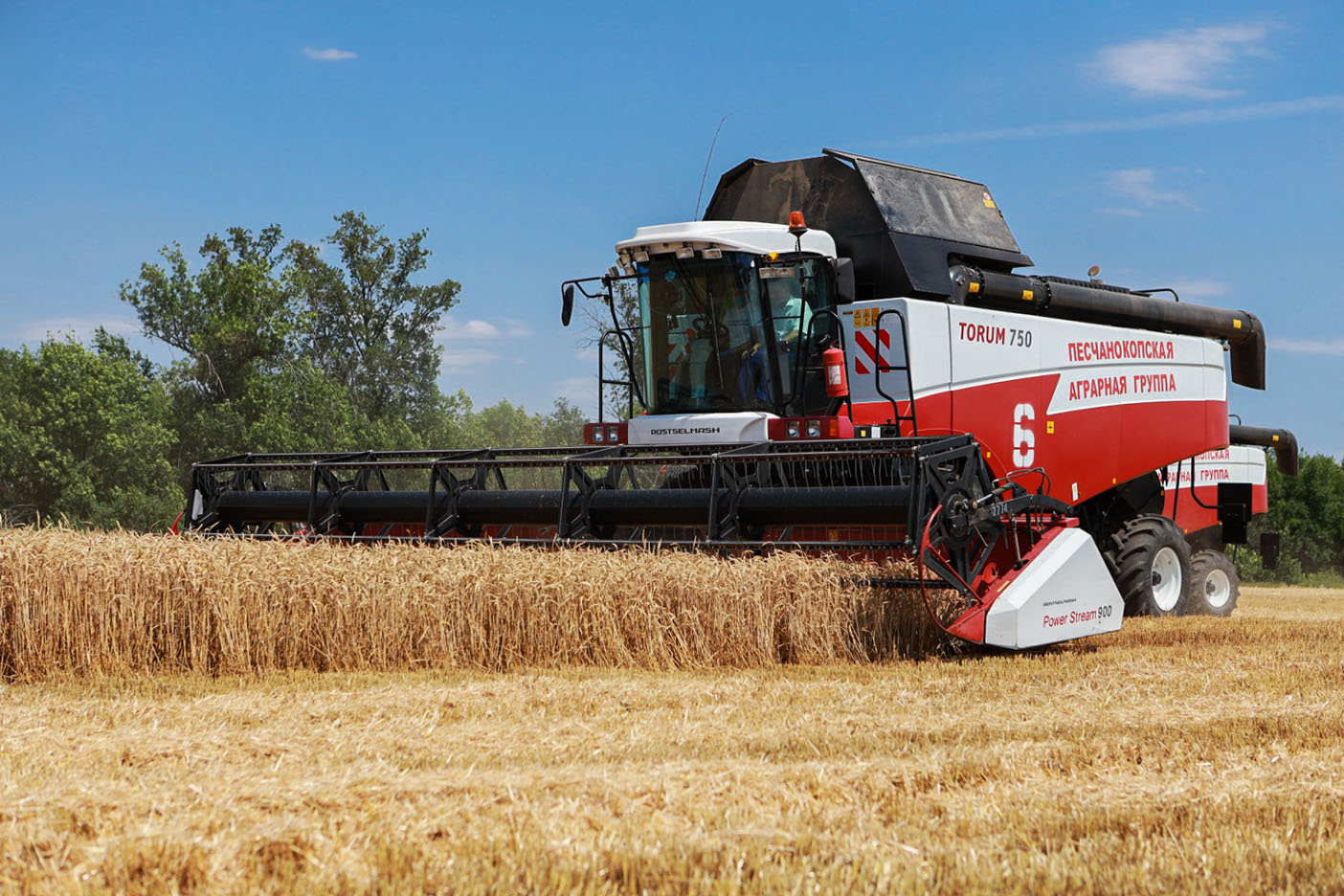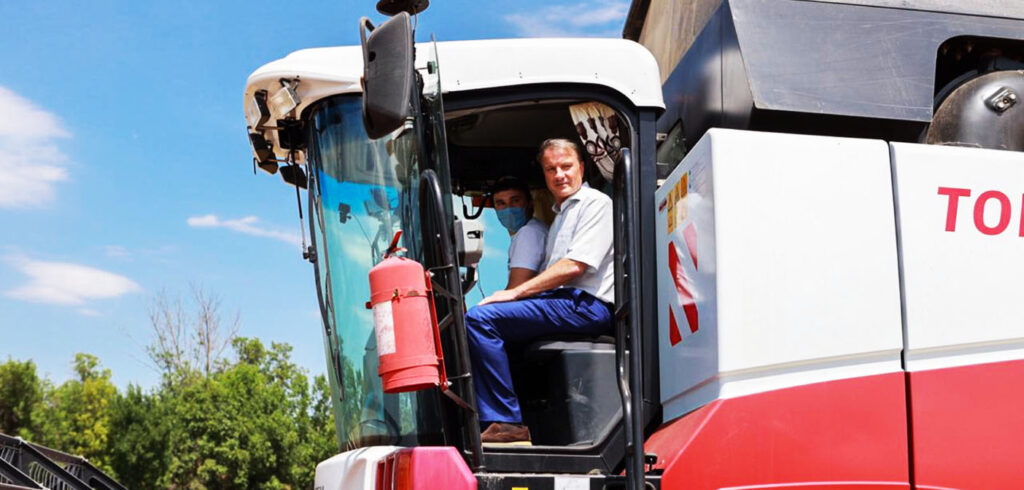“I’ve tested it myself when driving a harvester, I’ve modified the settings and everything worked flawlessly” were the very positive words of Russia’s Herman Gref earlier today direct from the fields of Rostov, Russia. Gref is CEO and Chairman of the Executive Board at Sberbank – Russia’s largest bank and a leading global financial institution. This state owned financial giant is invested in Cognitive Agro Pilot – an autonomous driving system for farming equipment, such as grain combine harvesters, tractors, and crop sprayers.
Gref was in attendance to test drive an autonomous combine in the fields of one of leading agricultural complexes in Rostov Region, Russia. There Sberbank and Cognitive Pilot launched their Russian-made AI-based robotic harvesting solution.
“Today we’re presenting Cognitive Agro Pilot, a unique AI technology based on deep learning convolutional neural networks.” announced Olga Uskova, CEO, Cognitive Pilot. “The solution is being tested in five countries, including the US, China and Brazil. Our main objective is to ensure safe operations of autonomous farm machinery in any weather conditions across agricultural enterprises and increase their incomes by cutting harvesting expenses.”
Now the driver can focus on harvesting efficiency
This autonomous system allows farm machinery operators to let robotic assistants run the equipment while the driver focuses on controlling of the technical side of processing and harvesting to boost yields. Cognitive Pilot claim that by using this autonomous solution, stakeholders can cut grain costs by 3–5% and halve their harvesting losses. They forecast that in general, with a field area of about 350,000 hectares and a fleet of 500 combine harvesters, the use of Cognitive Agro Pilot’s unmanned tech could save up to about $USD 6.4mn within a season.

Sberbank’s CEO Gref (pictured in the cabin above) was suitably impressed with what he saw: “In the era of global challenges, we are running an initiative to rise up to them in the vital economic sectors and public life areas – resolving food and social problems – primarily in central cities of Russian regions and rural areas. To a large extent, we do this by developing ground-breaking tech innovations and artificial intelligence. This technology transforms harvester operators into operators of an automated system. The latter is very simple, I’ve tested it myself when driving a harvester, I’ve modified the settings and everything worked flawlessly. Next year we are set to achieve full automation. This system saves substantial resources and improves working conditions making them more comfortable. Several companies of the Sberbank ecosystem have been involved in project implementation.”
Cognitive Agro Pilot ensures safe operations in harsh weather conditions and with any light intensity. This is the world’s first system that ‘sees’ and ‘understands’ what’s lying ahead. The solution does not have a GPS navigation system at the core of its control model and it can detect obstacles, including people, animals, metallic objects, and stones along the way, and enables it to operate on the territories with a weak satellite signal.
Vasily Golubev, Rostov Region’s Governor is fully on board with embracing modern agricultural technology in his region. “Rostov Region makes a significant contribution to food security in Russia, and we have huge tasks regarding the exportation of agricultural goods. Naturally, we welcome the technologies that facilitate hard and intensive work of our grain farmers.”
Artificial Intelligence and Machine Learning
The Cognitive Agro Pilot system analyzes images from just one video camera and by using a convolutional neural network designed for agronomic purposes, understands the types and positions of objects facing the machinery, and sends commands to perform manoeuvres.
The edge capture when controlling a harvester by the AI system is stable at no more than 20 cm, which lets the driver avoid unnecessary passes and fuel losses. The system can detect and track the position of the edge of the mowed crop, rolls, rows of crops (corn, sunflowers), and detect the end zone of a field, obstacles, equipment, and people. On top of that, the solution can be easily reinstalled from one type of equipment to another. Setup includes an autonomous unit to manage farm equipment, a video camera, a display, a set of connecting cables, and other elements of the control system.
The Cognitive Agro Pilot system has already been successfully adopted in the USA, Brazil, and China, as well as in several Russian regions such as Belgorod Region, Tomsk Region, Kurgan Region, the Republic of Tatarstan, etc. In 2019, the Cognitive Agro Pilot system won the international AVT ACES AWARD organized by the US Autonomous Vehicle Technology magazine.



